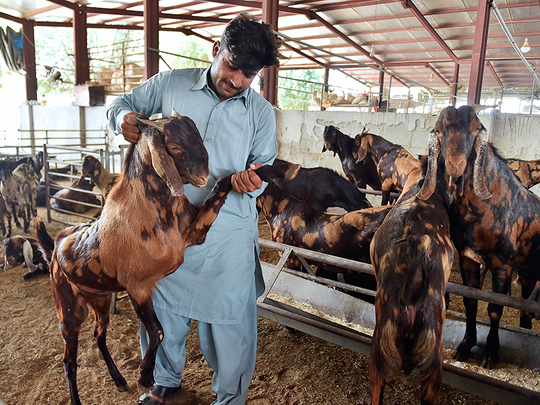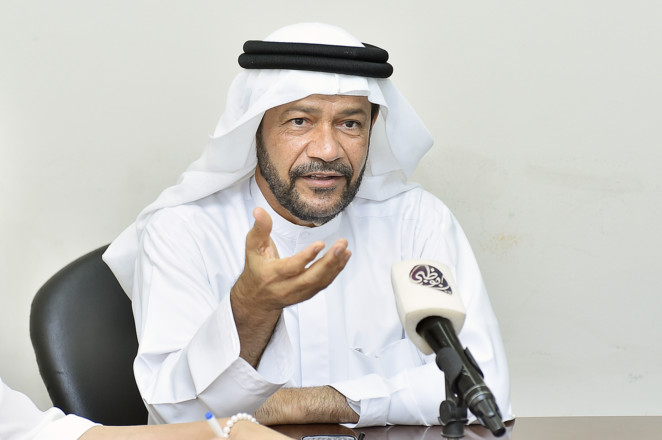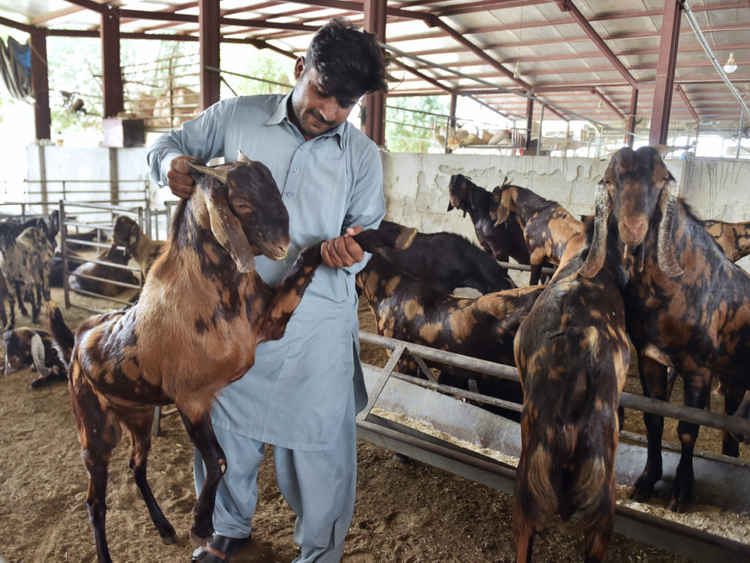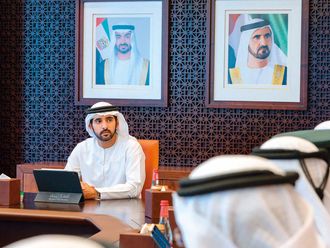
Dubai: Prices and supply of sacrificial animals are expected to be stable this Eid Al Adha, with no anticipated shortages or skyrocketing prices, a top official said on Sunday.
Dr Hashem Al Nuaimi, director of the Consumer Protection Department at the Ministry of Economy, said around 500,000 livestock are expected to be available in UAE cattle markets by Eid, which this year will be marked on August 31 or September 1.
The official added that livestock prices for Eid will range from around Dh700 for a small goat (weighing around 10kg to 12kg), to around Dh2,500 for a large one (weighing 35kg to 40kg).
Current prices range from around Dh550 to around Dh1,800 per goat, depending on weight, health and source country, a tour of the Dubai Cattle Market showed on Sunday.
Dr Al Nuaimi’s comments came during a meeting with livestock traders amidst concerns over suspended livestock imports from Pakistan this year, which traditionally exports significant numbers of livestock to the UAE for Eid.
Dr Al Nuaimi said any gap in supply from some countries will be bridged by imports from other countries, especially India, which alone is expected to ship more than 200,000 livestock in time for Eid this year.
More meetings between officials and traders will be held in the coming days, he added.
“It should be pointed out the local livestock capacity is also available in the UAE. In around two weeks, that supply will reach all cattle markets in the UAE. I’m hopeful there will be no trouble or shortage in the market.
“The price, what I expect for this season, will be between Dh700 and Dh2,500. And all the kinds of [sacrificial] livestock — cow, sheep, goat, others — will be available in the markets,” Dr Al Nuaimi said.
He clarified that imports of Pakistani livestock, which is hugely popular with consumers in the UAE, has been halted this season over health concerns, in a decision taken by the Ministry of Environment and Climate Change.
Dr Al Nuaimi also pointed out that India, which is known to suspend livestock exports during the monsoon season, is expected to resume exports soon. “Some traders have told me they are hoping to start importing from India in a few days.”
Livestock salesmen at the Dubai Cattle Market said goats and sheep from Australia and local farms are also very popular, especially with Emirati consumers.
Three Pakistani salesmen said the prices for Eid would depend on the supply. “You never know, prices may even drop, compared to last year. There’s still time for Eid and the situation will be clearer closer to Eid,” one salesman, who did not wish to be named, said.
Muslims in the UAE and other countries sacrifice livestock — a goat or sheep generally; sometimes a cow or camel — to celebrate Eid Al Adha, which is known as the festival of sacrifice. The ritual means cattle markets and abattoirs are full of customers a day or two before Eid, with the rush peaking on the first day of Eid.
The festival also marks the conclusion of the annual Haj pilgrimage.














